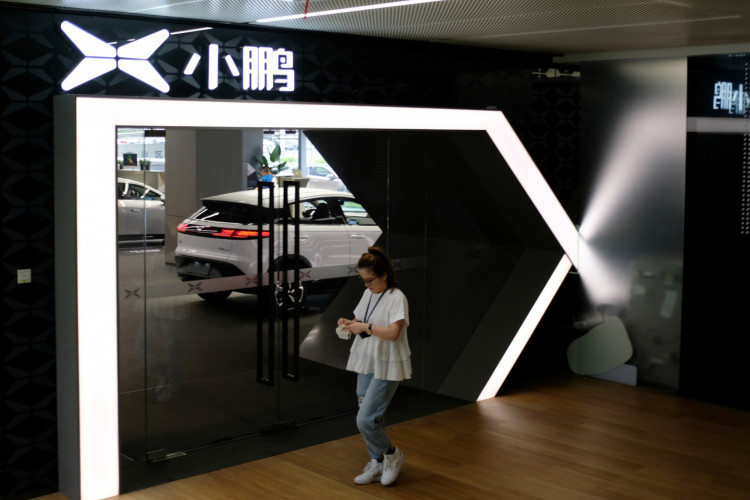Fundraising fever hit the electric vehicle sector this year and increased in the final quarter. In light of this, Xpeng Inc., one of the three China EV makers listed on the Nasdaq, has made what analysts say is an aggressive move.
Xpeng said it sold 48 million American depositary shares at $45 each - 8 million more American depositary shares than the company announced would be up for sale.
Cash-Fueled Growth
A total of $2.16 billion was raised from the increased share offering - priced at a discount of 7.6% below Tuesday's closing price of $48.69.
Shares of Xpeng resumed selling Wednesday and fell 8.3% to $44.65 on the day.
If the underwriters of the offering include an over allotment option to sell an additional 7.2 million shares, Xpeng could raise $2.48 billion.
"End-to-end R&D, data-driven capabilities and fast growth are three initiatives needed for a company to gain long-term competitive advantages and dominant market share," said He Xiaopeng, chairperson & CEO of XPeng on the company's second annual tech day last month.
Research and development in Xpeng's smart EVs and software, hardware and data technologies will receive 30% of the funds and another 30% will go to expansion of sales and its supercharging network, according to the statement in Xpeng's prospectus.
Xpeng said 20% of the funds will be spent on strategic investments in core technologies of smart EVs. The final 20% will complement general corporate operations.
Investing In R&D And Sales
In June Xpeng launched a smart factory in Zhaoqing, Guangdong province. It has 264 industrial robots that can conduct processes automatically.
Xpeng's research and development expenses were $93.6 million for the third quarter of 2020, representing an increase of 46.1% year on year.
Within the first quarter of 2021, Xpeng is expected to roll out the autopilot driving system XPilot 3.0, which will provide navigation guided pilots for highways and auto parking.
Analysts said aside from R&D investment, its full-channel sales mode, which integrates online marketing with offline sales in stores and service centers, was a costly division.
As of September, Xpeng had 116 bricks-and-mortar dealerships and 50 service centers across 58 cities in China. More than 50% of sales came online - including its website, app, social media and e-commerce platforms as well as from advertisements.
Last month, the company added 101 super-charging stations in 22 secondary cities, bringing the total to 66 cities with 533 charging stations.
Riding The Retail Investor Phenomenon
According to the China Passenger Car Association, domestic EV sales more than doubled last month to 169,000 units.
Over the past quarter, Chinese EV startups Nio, Li Auto and Xpeng have lined up to challenge Tesla with a series of very solid earnings reports.
Shanghai-based Nio reported delivery of 12,206 vehicles in the third quarter. Its revenue was boosted by 146% to $628 million. Xpeng reported deliveries were 8,578 units - representing an increase of 268.5% from 2,345 in the third quarter of 2019. Meanwhile, vehicle sales at Li Auto reached $363 million - a rise of 28.4% quarter-on-quarter.
Shares of Xpeng have increased by 147% compared with its initial public offering price Aug. 27. During the same period, Nio and Li Auto shares ran up by 145.2% and 106.3%, respectively.
These sales and stock performance have triggered speculation as to whether China EV makers can replicate Tesla's success.
Short seller Citron Research told CNBC that it is "a retail investor phenomenon" and their rapid manufacturing is enough to allow the companies to grow quickly.
China's market is large enough and there are government's subsidies to support such startups to grow rapidly in the short term. However, whether or not they can live up to their current stock valuations remains another matter, said analysts.
China's intelligent-connected vehicle market is estimated to reach 115 billion yuan ($17.58 billion) by 2021.





